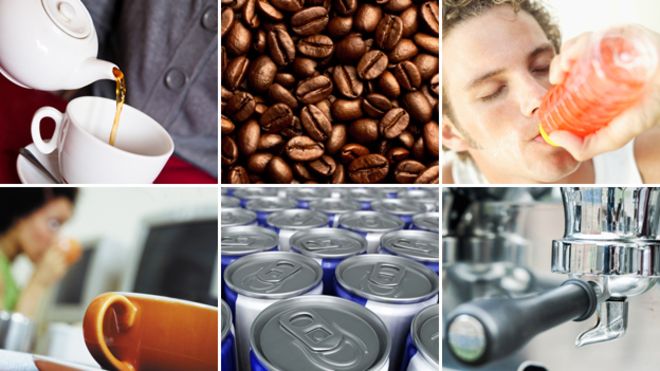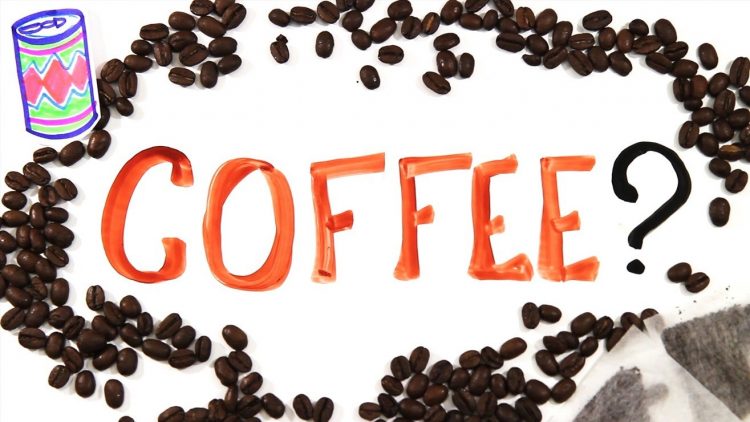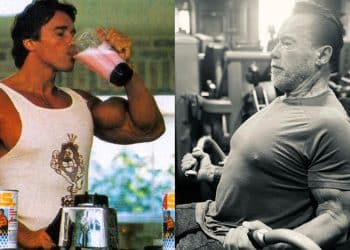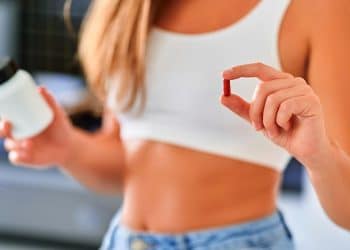Caffeine is a methylxanthine containing paraxanthine and theophylline (Glaister et al, 2008), found in many species of plant, it is widely distributed over the counter in many forms of food and drink, such as coffee, coke, and chocolate (Seifret et al, 2011). Up until 2004 Caffeine was a banned substance within the IOC (International Olympic Committee) any athletes who tested positive, having over 12 μg•mL ̄ ˡ of caffeine in their urine were banned (Doherty, 1998), this would require the consumption of 9 mg•kg ̄ˡBM. However, the majority of studies have shown significant differences in the improvement of performance from the ingestion of 3 mg•kg ̄ˡBM of caffeine (Graham and Spriet, 1995). Possibly because of this but also due to caffeine being present in many foods and drinks (as it is the most commonly used drug in the world) (Seifret et al, 2011) it was taken off of the banned substances list and is now known as a legitimate ergogenic aid.
However, the majority of studies have shown significant differences in the improvement of performance from the ingestion of 3 mg•kg ̄ˡBM of caffeine (Graham and Spriet, 1995). Possibly because of this but also due to caffeine being present in many foods and drinks (as it is the most commonly used drug in the world) (Seifret et al, 2011) it was taken off of the banned substances list and is now known as a legitimate ergogenic aid.
 A study by Biggs et al, (2007) Looked at the effect it has on tiredness by having sleep deprived subjects take part in a driving simulation, the study had two trials, caffeine and a placebo. The results of the study showed that the participants within the caffeine trial were more responsive to specific cue’s within the simulation thus suggesting that caffeine results in people being more alert, this is why it is present in many energy drinks.
A study by Biggs et al, (2007) Looked at the effect it has on tiredness by having sleep deprived subjects take part in a driving simulation, the study had two trials, caffeine and a placebo. The results of the study showed that the participants within the caffeine trial were more responsive to specific cue’s within the simulation thus suggesting that caffeine results in people being more alert, this is why it is present in many energy drinks.
Caffeine has been seen to improve aerobic performance on many occasions (Desbrow et al, 2012; Graham & Spriet, 1991; Laurence et al, 2012). Many of the early investigations employed protocols that had participants exercise until exhausted, despite this being criticized by many later papers the applications of this can be applied in a gym environment to push your work out for longer, providing you like to crawl out of the gym.Other early evidence (Collomp et al, 1991; Greer et al, 1998) focused on supplementation during anaerobic exercise; this seemed less promising as no significant differences in performance were observed. However, some and mostly later studies (Astorino et al, 2011; Bell et al, 2001 Doherty, 1998) have demonstrated that caffeine is indeed ergogenic when taking part in the anaerobic exercise. The reason why this has happened has been suggested that the more recent papers have used more experienced and better-trained participants. If this is the cause then it is unknown as to why this aspect makes a difference.
Other early evidence (Collomp et al, 1991; Greer et al, 1998) focused on supplementation during anaerobic exercise; this seemed less promising as no significant differences in performance were observed. However, some and mostly later studies (Astorino et al, 2011; Bell et al, 2001 Doherty, 1998) have demonstrated that caffeine is indeed ergogenic when taking part in the anaerobic exercise. The reason why this has happened has been suggested that the more recent papers have used more experienced and better-trained participants. If this is the cause then it is unknown as to why this aspect makes a difference.
There is still a lot of controversy about the specific mechanism or mechanisms of how caffeine produces an improvement in performance. Many papers often assume and focus on the specific mechanism which they believe to be the cause, yet few provide any real evidence as to why. One theory is that of adenosine antagonism, this is where adenosine receptors are blocked by caffeine molecules (adenosine is a known serotonin agonist), the production of serotonin is reduced thus participants feel less drowsy. This explains how participants may be able to exercise for longer periods of time until exhaustion but doesn’t explain how caffeine is beneficial when exercising anaerobically.
How to best use caffeine
 Doses of caffeine appear to be most effective around 3 -6 mg•kg ̄ˡ BM, this can be seen in many studies (Desbrow et al, 2012; Graham and Spriet, 1995). As the concentration of caffeine is increased beyond this performance is increased to a lesser extent. Many studies (Desbrow et al, 2012; Graham and Spriet, 1995; Laurence et al, 2012; Roelands et al, 2011) have participants consume Caffeine an hour prior to exercise as it has been seen that this is how long it takes for caffeine to fully enter the blood stream. However, it should be made aware that many studies often overlook caffeine serum concentrations and do not report it especially studies that do not show any change in performance (Roelands et al, 2011).
Doses of caffeine appear to be most effective around 3 -6 mg•kg ̄ˡ BM, this can be seen in many studies (Desbrow et al, 2012; Graham and Spriet, 1995). As the concentration of caffeine is increased beyond this performance is increased to a lesser extent. Many studies (Desbrow et al, 2012; Graham and Spriet, 1995; Laurence et al, 2012; Roelands et al, 2011) have participants consume Caffeine an hour prior to exercise as it has been seen that this is how long it takes for caffeine to fully enter the blood stream. However, it should be made aware that many studies often overlook caffeine serum concentrations and do not report it especially studies that do not show any change in performance (Roelands et al, 2011).
Graham, (2001) questioned whether the method of taking caffeine influences its effects. Although more investigations have been done since then it is still not possible to fully answer this question. Most studies still use oral administration in the form of gluten capsules or administered in a water solution, which is usually ingested in one go however some studies have utilized repeated dosage protocols such as Ganio et al, (2011). Despite these differences in the delivery of the drug, it is still not clear if any have a clear beneficial effect over another. Although, Del Coso et al, (2008) suggested that the co-ingestion of caffeine within a sports drink may subdue the caffeine dose to rehydration volume which may attenuate the potential ergogenicity that could be obtained.
Caffeine tolerance can cause less prominent effects, the studies that have been mentioned use none habitual caffeine drinkers as participants. This is so the administration of acute caffeine supplementation in regard to performance can be accurately assessed.
References:
Astrino, T. A., Terzi, M. N., Roberson, D. W., & Burnett, T. R., (2011). Effect of Caffeine on Pain Perception During High-Intensity Exercise. International Journal of Sport Nutrition and Exercise Metabolism. 21, 27-32.
Bell, D. G., Jacobs, I., & Ellerington, K., (2001). Effect of caffeine and ephedrine ingestion on anaerobic exercise performance. Medicine & Science in Sports & Exercise. 33(8), 1399-1403.
Biggs et al, (2007). Perception of simulated driving performance after sleep restriction and caffeine. Journal of Psychosomatic Research. 63(6), 573-577
Collomp, K., Ahmaidi, S., Audran, M., Chanal, J. L., & Prefaut, Ch, (1991) Effects of caffeine ingestion on performance and anaerobic metabolism during the wingate test. International Journal of Sports Medicine. 12, 439
Del Coso, J., Estevez, E., & Mora-Rodriguez., (2008a). Caffeine effects on short-term perforamnce during prolonged exercise in the heat, Medicine and science in sports and exercise. 40, 744-751.
Desbrow, B., Biddulph, C., Devlin, B., Grant, G. D., Anoopkumar-Dukie, S., Leveritt M. D., (2012). The effects of different doses of caffeine on endurance cycling time trial performance, Journal of sport science. 30(2), 115-120.
Doherty, M., (1998). The Effects of Caffeine on the Maximal Accumulated Oxygen Deficit and Short-Term Running Performance. International Journal of Sport Nutrition and Exercise Metabolism. 8, 95-104.
Ganio, M. S., Johnson, E. C., Klau, J. F,. Anderson, J. M., Casa, D. J., Maresh, C. M., Volek, J. S., & Armstrong, L. E.,(2011a). Effect of ambient temperature on caffeine ergogenicity during endurance exercise, Journal of Applied Physiology. 111, 1135-1146
Glaister, M., Howatson, G., Abraham, C. S., Lockley, R. A., Goodwin, J. E., Foley, P., & Mcinnes, G., (2008). Caffeine Supplementation and Multiple Sprint Running Performance. Medicine & Science in Sports & Exercise. 40(10), 1835-1840.
Medicine & Science in Sports & Exercise. 40(10), 1835-1840.
Graham, T. E.,& Spriet, L. L., (1995). Metabolic, catecholamine and exercise performance responses to various doses of caffeine, Journal of applied physiology, 78(3), 867-874.
Greer, F., McLean, C., & Graham, T. E., (1998). Caffeine, performance, and metabolism during repeated Wingate exercise tests. Journal of Applied Physiology. 85, 1502-1508.
Laurence, G., Wallman, K., & Guelfi, K., (2012). Effects of caffeine on time trial performance in sedentary men. Journal of Sports Sciences. 30(12), 1235-1240.
Roelands, B., Buyse, L., Pauwels, F., Delbeke, F., Deventer, K., & Meeusen, R., (2011) No effect on exercise perforamance in high ambient temperature, European journal of applied physiology. 111, 3089-3095.
Seifert, S. M., Schaechter, J. L., Hershorin, E. R., & Lipshultz, S. E., (2011). Health effects of energy drinks on children, adolescents, and young adults. American Academy of Pediatrics. 127(3), 511-528.











